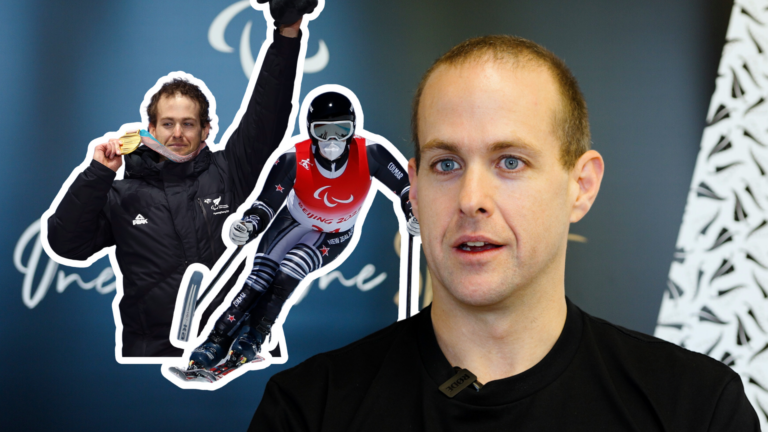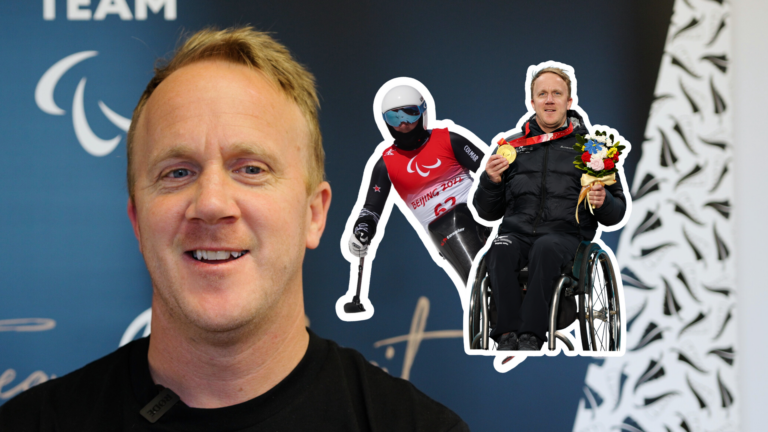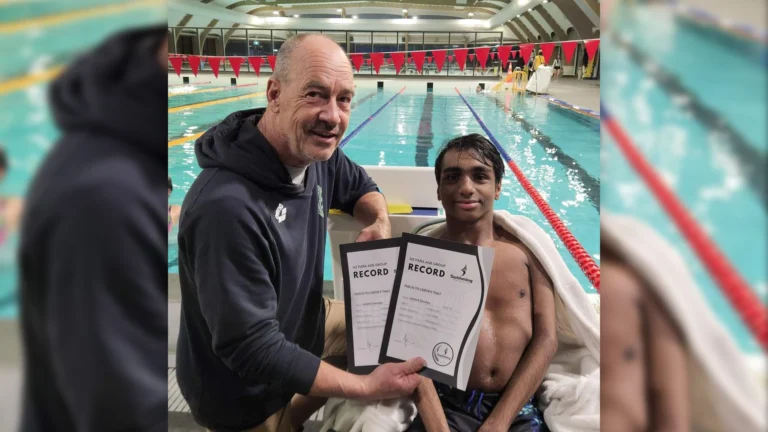Team services available & processes
The New Zealand Paralympic Team has a comprehensive range of services available for all members of the team. Dr Julie Milmine and Dr Peter McKenzie are available 24 hours a day, to deal with all situations, urgent and non urgent.
It is expected that all medical issues go firstly to the internal medical team. We do not anticipate using the polyclinic located in the village as a first port of call. It is important that you use the NZ Medical Team firstly, as they are aware of all team member’s prior history, any medical conditions and therapeutic drugs being taken.
The Polyclinic is there for additional support and hospital services are available if needed as support.
Paralympic Village Services:
It should be noted that the NZ Paralympic Team has a comprehensive range of medical services available in house. Other than the internal NZ Medical Team, the following services will be available in each of the Paralympic Villages.
Polyclinic
Emergency medical services are available in the Village 24 hours a day. The services provided include sport medicine, ultrasound, dentistry pharmacy, primary care, emergency services and physiotherapy.
Paralympic Village
- August 21st – September 10th
- Operating hours: 0700 – 2300
- 24 hours for emergencies
Physiotherapy services
In village physiotherapy services will be available within the NZ medical centre in Paris with Jacinta Horan.
This service can be utilised by athletes and staff as required.
If you are an athlete that is travelling with a NSO physiotherapist i.e athletics or swimming please speak to your team physiotherapist and they will either treat or arrange for you to be seen by Jacinta depending on what works best with your/their schedule and requirements. Your team physio and Jacinta will then link up to ensure that the best plan is arranged for you going forward.
If you do not have a NSO physio travelling with you, you will be seen by Jacinta if physiotherapy care is required.
If you need physiotherapy assessment or treatment you will message (whatsapp) Jacinta to arrange a time that suits your schedule.
Wheelchair and prosthetic repair
Ottobock will be the official provider for wheelchair, orthotic and prosthetic repair services for athletes, NPC team officials, IF Games officials and members of the Paralympic Family during the Games.
Repairs will be offered free of charge to damaged wheelchairs, orthotics or prostheses that, if not carried out, would either prevent athletes from competing in their events, or delegates from achieving their usual level of independent daily living.
The workshop is located in the Village Plaza and will be the primary facility for wheelchair, orthotic and prosthetic repair services during the Paralympic Games.
The dates and times of operation can be found below:
- 18-20 August 2024 10:00-18:00
- 21 August – 10 September 2024 08:00-23:00
* On Opening and Closing Ceremony days (28 August and 8 September 2024 respectively) services will be available from 08:00- 16:00.
Medical advice for flying and time in Paris
Pre Flight
- Get a good sleep prior to departure
- Ensure you have hydrated well over the day prior to arriving at the airport for travel
- Try and fit in some light exercise prior to your flight (avoid intense training)
- Book a window seat
- Ensure hand and surface sanitiser is in your carry bag
- Ensure a supply of face masks to last the journey
- Hydration and nutrition for flights should be individualised and arranged in advance.
In Flight
- After boarding the plane, sanitise the arm rests, table and other touch points
- Wear a mask throughout the flight
- Minimise use of bathroom and communal areas – hand wash thoroughly after use
- Eye mask and ear plugs can assist with sleep
- Think about taking a travel pillow
- Drink to the sensation of thirst. Much of jetlag comes from the body being dehydrated. Remember that alcohol, caffeine and sugar will only worsen the effects of dehydration.
- Avoid rich food, so your body can concentrate on catching up, instead of digesting. Eat lightly to avoid indigestion.
- Moisten your face to counter the drying effects of the air conditioning
- A saline nasal spray can help prevent nasal passages drying out.
- Gentle exercise during the flight – every 1-2 hours for about 5 mins
- Athletes with risk of developing pressure areas need to be vigilant about correct seating eg bring your own cushion and change position regularly.
- Remember if you need some assistance, do ask for it. Team support staff and flight attendants can assist.
Jet Lag – How to beat it
- Organisation, make sure that work, packing and any details that need to be addressed while you are away are sorted out early and not left to the last minute.
- Stress causes insomnia, therefore avoid stress as much as you can in the lead up to your departure.
- Rest before you go, the better rested you are, the better you will cope with jet lag. Less than 8.5 hours sleep a night, will result in sleep debt. Try and get two to three hours of quality sleep before you leave.
- During your flight make sure you have compression stockings, eyeshade, relaxing book and ear plugs. For some people, lavender oil helps to induce sleep. Humidiflyer if you had chosen to use this.
- Avoid alcohol – it is far more potent at altitude and it dehydrates you and disrupts your sleep.
- Start living the new time zone as soon as you can – go to bed in the evening, even if it is early and set your watch to the time of where you are heading as soon as possible.
- If you are not getting enough sleep at night, take a short nap during the day – a 30 minute refresher sleep is ideal.
- When you arrive be sure to get outside and get some sunlight on you, this will help with resetting your body clock.
- It is advised to avoid wearing sunglasses for the first 48 hours as these impact your bodies ability to reset your body clock by blocking blue light.
- You may wish to use some melatonin, which can be prescribed by your doctor. If you need any further advice on this please contact Julie.
Medical advice while in Paris
Hydration and nutrition
- You are there to compete, stick to your nutrition regime until you have finished your competition.
- It may be hot, pre hydration is more effective than rehydration.
- The tap water in the village should be avoided, stick to bottled water.
- Please be aware that there may be some change to how your gut behaves whilst you are away from home. Things might be a bit loose and your usual regime may not be the case. This is more likely to happen if you venture away from what you normally eat and drink. This is to be expected and not cause for concern unless you start to feel unwell with it i.e fever, shakes, chills etc.
Eat and drink safely
- The food in the village will be under strict hygiene and nutrition guidelines, the biggest danger here is straying from your usual regime.
- There will be a lot of food and drink freely available. Eat what you would normally eat (the type of food ,as well as volume) for training and competition and try new things after you have finished competing.
- A lot of traveller’s diarrhoea issues can be avoided by taking simple everyday precautions.
- Always wash your hands before eating and handling food, and after using the bathroom.
- You should take some alcohol based hand sanitizer with you.
Sleep
- Actively manage your sleep routine. Talk about this with your roommate. Fatigue leads to impaired decision making, slower reaction time, increased sensitivity to pain, slower glucose metabolism and increased cortisol production. All can impact on performance.
- Less than seven hours of sleep impacts performance.
- Caffeine, alcohol and sleeping pills all can have a negative impact on sleep and thus performance.
Sun Smart
- Spare a thought for your skin. Apply ample amounts of sunscreen at regular intervals throughout the day.
- Your sweat rate will increase with the heat, therefore you will sweat your sunscreen off.
- Reapply sunscreen at least every three hours, when outside for prolonged periods.
- Wear a hat and have protection for your neck, particularly if you are training outside for extended periods of time.
- Use shade as much as you can. Get out of the sun at every opportunity you can.
Heat acclimatisation
- Even though you have probably done some heat acclimatisation work in your training, the sudden change in temperature may still shock your body.
- Remember the heat and prepare your body – nutrition, hydration, shade etc
Dehydration
- Adequate hydration is important for performance.
- Start exercise well hydrated.
- Drink during exercise as thirst dictates.
- Make sure you plan well in advance of your training what your individual requirements are for competition.
- Sports drinks are better rehydration then water alone, they are absorbed quicker into your system and replace vital electrolytes. Check the ingredients. Work out which drink suits you best.
Medications
- Take all your essential medications with you.
- Make sure all your medicines are clearly labelled and in their original packaging.
- All athletes should carry a copy of any therapeutic use exemptions they require.
- Information is available from Drug Free Sport New Zealand, or Julie if you need further advice.
Medical support
Please inform medical support staff as soon as possible should any issue arise regarding injury or illness. This is your responsibility. Support staff are there to help you as much as they can, but this relies on you letting us know when you are concerned.
DRUG FREE SPORT TESTING – UPDATED INFO
Doping in sport is a very hot topic at the moment and it’s important you are aware of your rights and responsibilities leading up to the Paris 2024 Paralympic Games. There will undoubtedly be a higher volume of testing, and therefore a greater chance of athletes testing positive, whether deliberate or not.
Here are a few quick reminders.
Whereabouts
Athletes in the testing pool must submit accurate and detailed whereabouts for the full period of the games. Paralympics New Zealand (PNZ) will advise athletes of any other whereabouts requirements during the Games period.
At the games
Testing may occur at anytime or place. All athletes are also subject to doping control from the day the village opens, until the closing ceremony. Testing may be undertaken by the International Paralympic Committee, or your International Federation.
In competition
Tests will apply from 12 hours prior to each competition you are entered in, until its completion.
Doping control
Ensure you take a representative with you for any doping control tests and be compliant with the doping control process. If you have any concerns about the process, ensure you record these concerns on your doping control form.
Medications and TUEs
Please check all medicationson Global DRO – https://www.globaldro.com/Home
Apply for a TUE prior to using any prohibited substance or method.
All TUE’s will be reviewed by the IPC. TUE’s already issued which cover the games period ,must be submitted to the IPC by 5th August 2024.
Retroactive TUE’s can only be applied for in cases of medical emergency, so do not get caught out.
Supplements
Using supplements can lead to positive tests so please follow all precautionary procedures as listed on the DFSNZ website and elsewhere. If you are in any doubt about the safety of the supplements you wish to use, don’t use them.
Information
DFSNZ will be working with PNZ to provide education seminars. You are strongly encouraged to attend, as it may save you from making a critical mistake, which could end your sporting career. DFSNZ have online education tools to assist you if you cannot attend a webinar.
Support for clean sport
It is important that as New Zealanders, we reinforce the pride we take in competing clean at home, and in international competition. Please use every opportunity you can, through the media or your personal conversations, to emphasise your support for clean sport and your confidence in the programmes we run. We are all on the same team. Please contact us with any queries you have about anti doping, we would love to talk to you. Best wishes for your preparation and performance.


























